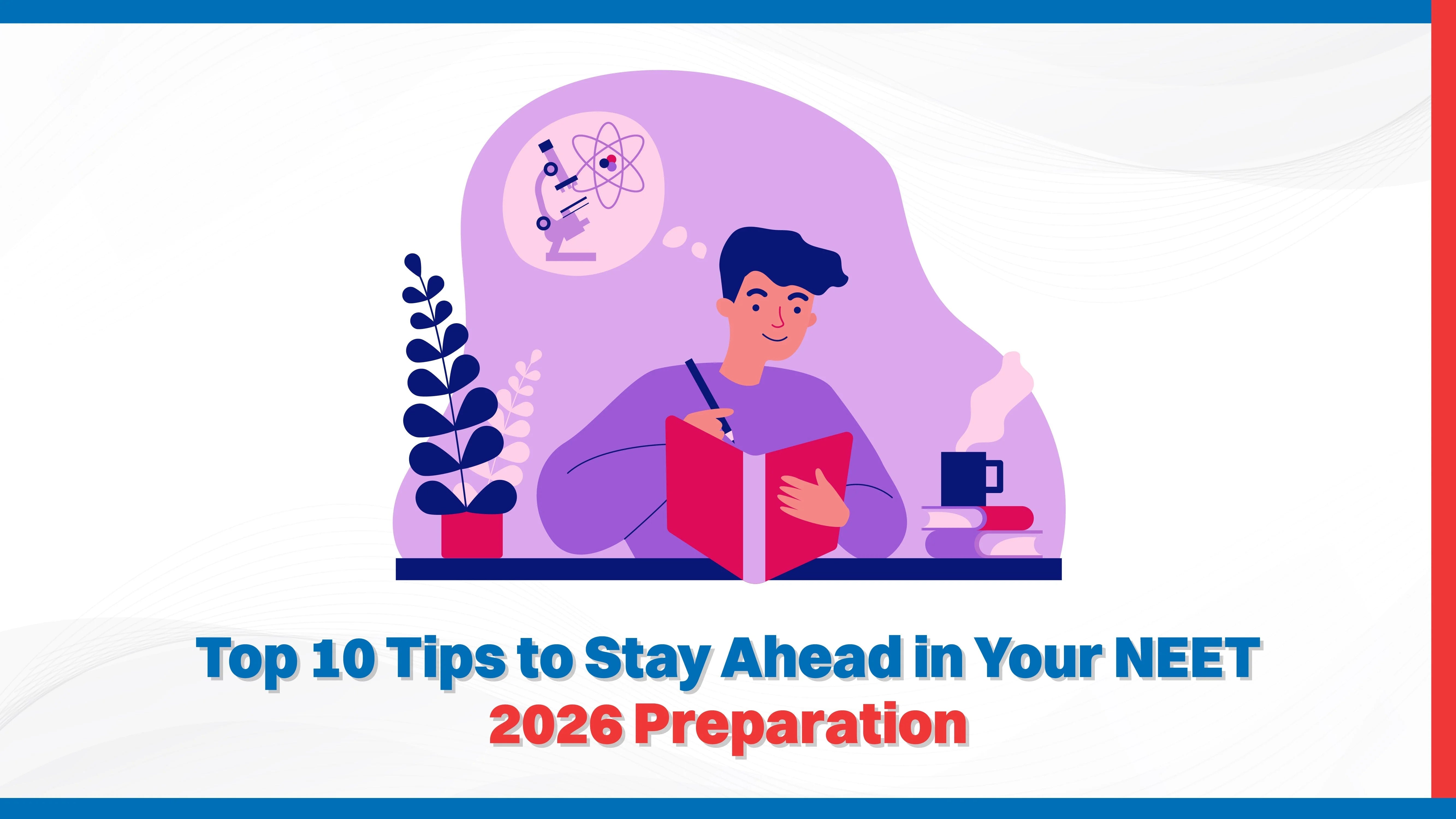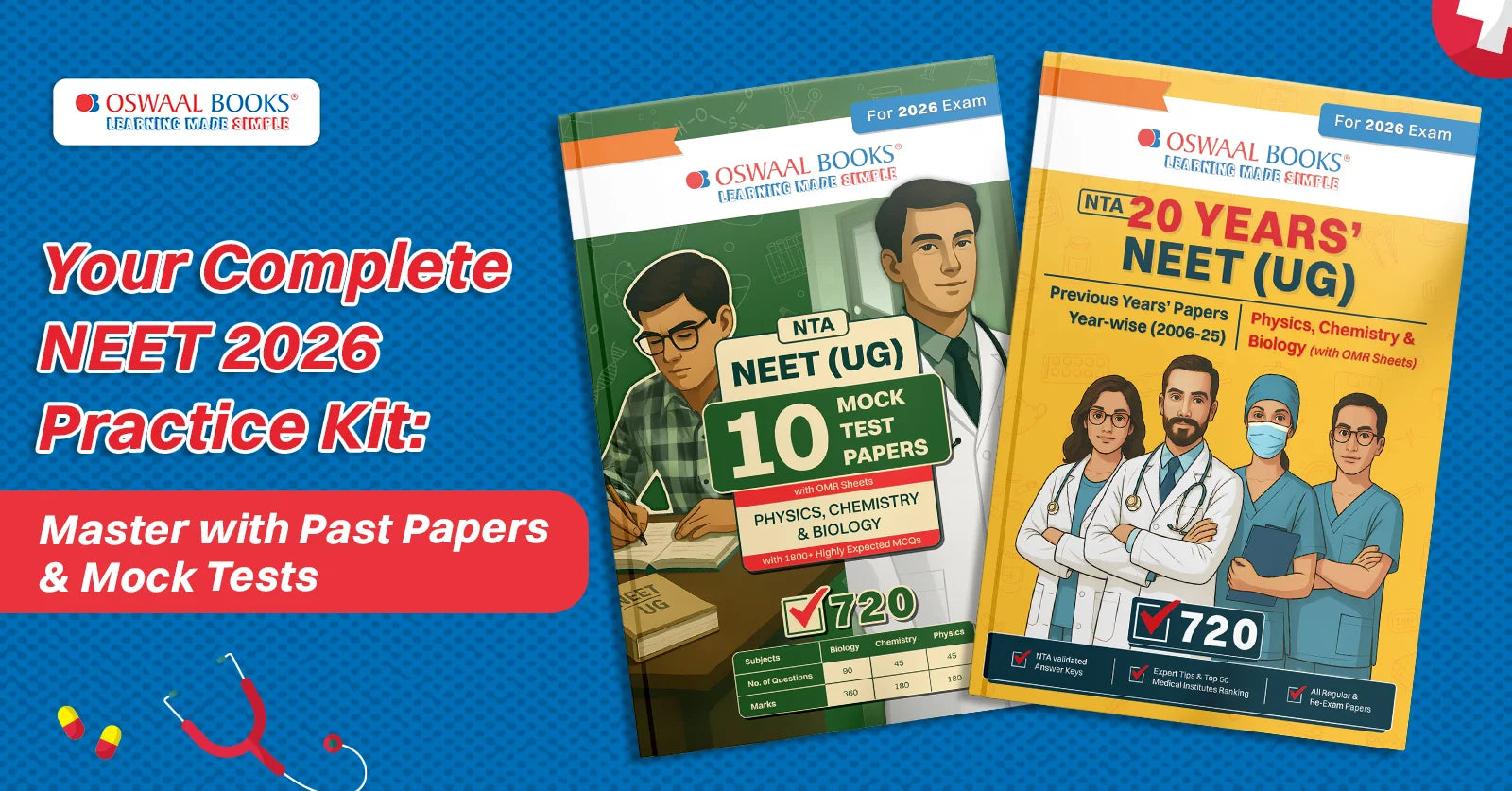Preparing for the NEET exam is challenging, so choosing the right books is very important. Many students search for the best books for NEET to guide their study plan. In fact, no single book is enough—you need a mix of materials. Broadly, you should use the standard NCERT textbooks, some good reference/guide books, and lots of practice question banks. Each type of book serves a purpose. In this blog, we explain what books you need for each NEET subject and how to use them effectively.
NCERT Textbooks—The Foundation
NCERT textbooks for Class 11 and 12 (Physics, Chemistry, Biology) are the core books for NEET. These books cover nearly the entire syllabus. The NEET exam is largely based on NCERT content, so these books give you the basic theory in clear language. In fact, around 50–70% of NEET questions come directly from NCERT textbooks. For Biology especially, about 85–90% of questions are based on NCERT concepts.
-
Read thoroughly: Study all chapters and diagrams from the NCERT Class 11 and 12 books.
-
Do all exercises: Solve every example and back-of-chapter question in the NCERT. These problems are similar to NEET questions.
-
Learn definitions: Use the exact NCERT terms and definitions since the exam pattern follows them closely.
-
Revision: Make brief notes of key points and tables from NCERT for quick review later.
By focusing on NCERT first, you build a strong foundation. These books explain concepts simply and cover every topic you need. After NCERT, you can use other books to practice and deepen your understanding.
Reference/Guide Books (Subject-wise)
|
Subject |
Purpose |
Book Type |
|
Physics |
Build strong concepts and practice numerical questions |
Concept-based guides and MCQ books |
|
Chemistry |
Practice reactions, formulas, and theory in-depth |
Problem-solving books and quick review guides |
|
Biology |
Revise key fact, diagrams, and practice MCQs |
NCERT + objective question practice books |
Practice Books & Previous Year Papers
Once you understand theory, you need lots of practice. This means solving MCQ practice books, sample papers, and past exam questions. A very helpful resource is a NEET PYQ question paper book. This is a book that collects many previous years’ NEET questions in one place. Practicing these old questions is very useful:
-
Past papers: Solve full past NEET exams to get used to the exam format. Analyzing them shows you the common topics and question patterns.
-
MCQ Question Banks: Use books with chapter-wise multiple-choice questions. These can be the Oswaal series or other objective guides. They let you practice many questions per topic.
-
Mock tests: Take timed mock exams or test series to simulate the real test. This improves speed and confidence.
Studying from these books has huge payoffs. It's an aid to spotting the trends and concentrating on the significant matters. It also makes you better at time management—while you are solving problems under the time constraint, you learn to take time per question. For instance, solving actual NEET papers teaches you how to attempt 180 questions in 3 hours. That way you won’t be caught off guard when test day rolls around.
The more widely you practice, the more patterns of questions you can answer. It also builds speed and confidence.
Read More: Is Only PYQ Sufficient for NEET?
Study Plan and Tips for NEET Preparation
A clear study plan should direct your use of these books to achieve proper utilization.
-
Begin with NCERT: Examine one chapter from NCERT across all three subjects and ensure complete comprehension. Make simple notes in your own words
-
Upon completing a chapter, engage with subject-specific reference or practice books to tackle corresponding problems. Attempt a set of 20–30 multiple-choice questions from the chapter.
-
Engage with diverse disciplines daily by scheduling different subjects, such as morning Physics sessions followed by afternoon Biology and evening Chemistry to maintain interest.
-
Engage in periodic study sessions dedicated to solving questions from previous year exams or NEET practice tests. This evaluates the totality of your readiness state.
-
Engage in periodic revision: Employ brief notes or flashcards (condensed formulas, reactions, and diagram labels) for eleventh-hour study sessions.
-
Monitor progress: Keep track of your scores on tests. Identify the subjects where errors occur, then perform repeated reviews of those sections.
Your study methods will become more balanced when you use books this way. NCERT books help to build a foundation for each subject. Reference guides and textbooks provide plenty of questions for practice. These also help you to know the exam pattern and the difficulty level. The combined use of all types of books ensures complete preparation.
|
Book Type |
Why It’s Useful |
|
NCERT Textbooks (Class 11 & 12) |
Clear theory and diagrams for all topics. A large part of NEET questions come directly from these books. Helps build your fundamentals. |
|
Reference/Guide Books |
Provide extra examples, detailed explanations, and additional problems beyond NCERT. Good for practicing tougher questions in each subject. |
|
Practice Question Banks |
Contains many MCQs and chapter-wise exercises (often with solutions). These books, such as the objective question series, train you to answer quickly and accurately. |
|
Solved Papers & Mock Tests |
Real past NEET papers and sample tests. Practicing these helps you understand the exam pattern and recurring topics and improve time management. |
|
Revision Notes/Flashcards |
Quick summaries of formulas, diagrams, and facts. Useful for last-minute review and final-day preparation. |
Practice comprehensively with Oswaal360 online courses for the NEET exam
Practice Now with Free Oswaal360 Online Mock Test for NEET Exam
Final Thoughts
The NEET exam requires deep understanding and consistent practice. A good combination of the NCERT books, reference guides, and question banks is enough to prepare you well. NCERT is your foundation, guidebooks are your building bricks, and practice materials are your polishers. (Stick to a schedule, review regularly, and test yourself, according to the Daily Overview of Goals (my addition). A good bunch of books utilized in the correct way can really make your NEET preparation more impactful.
FAQs
Q1. Are NCERT books enough for NEET?
They are required, particularly for Biology, and you will also need additional practice books.
Q2. Which books are good for each subject?
Refer to NCERT for theory, and for practice questions, refer to subject-wise guide books.
Q3. Should I solve previous year papers?
Yes, they can help you familiarise yourself with the exam pattern and manage the time better.
Q4. How do I use all these books together?
Begin with NCERT, solve with guides, and then give an examination with previous papers and mocks.














